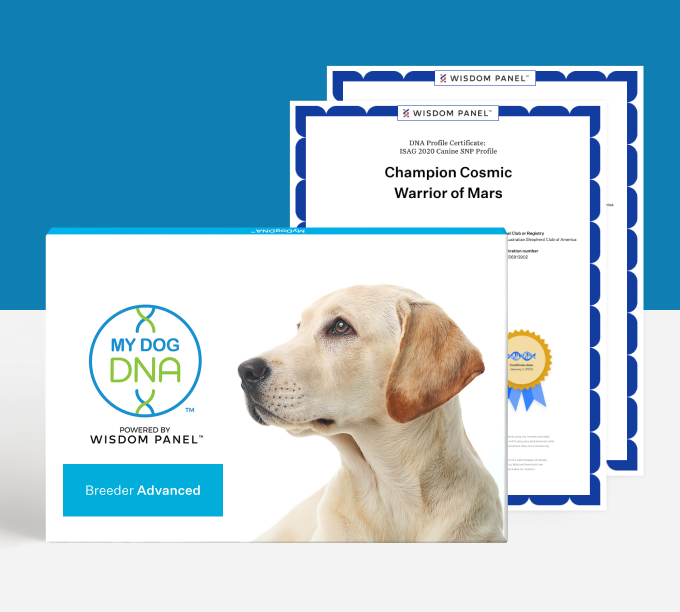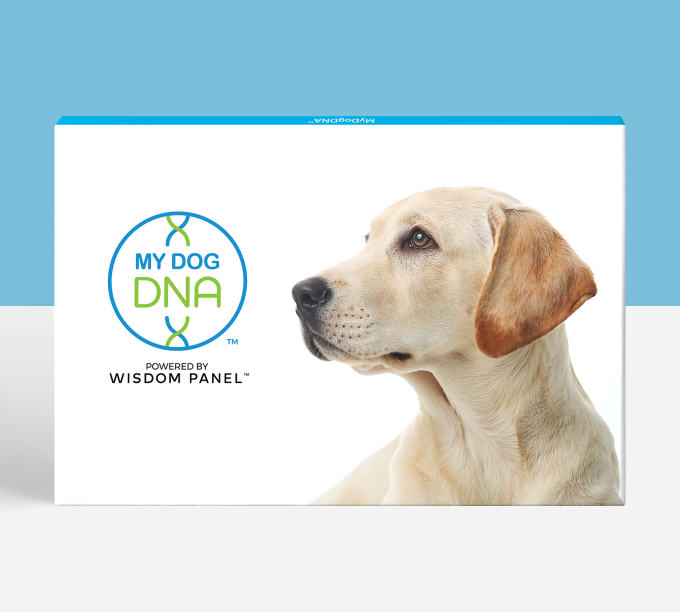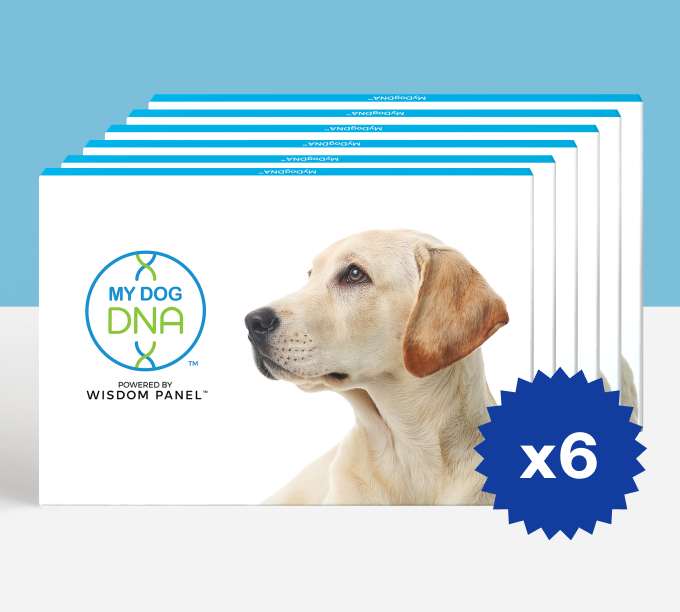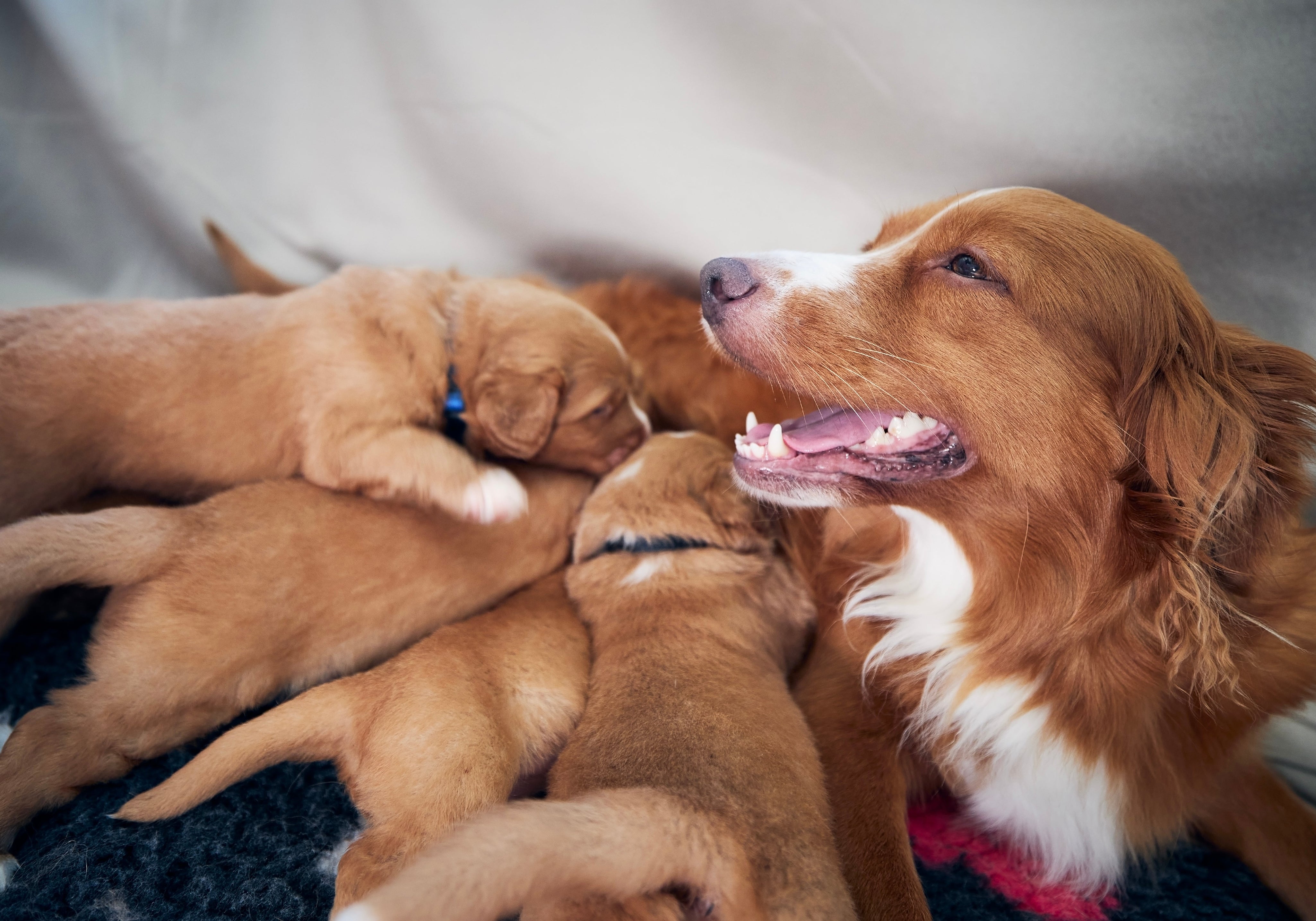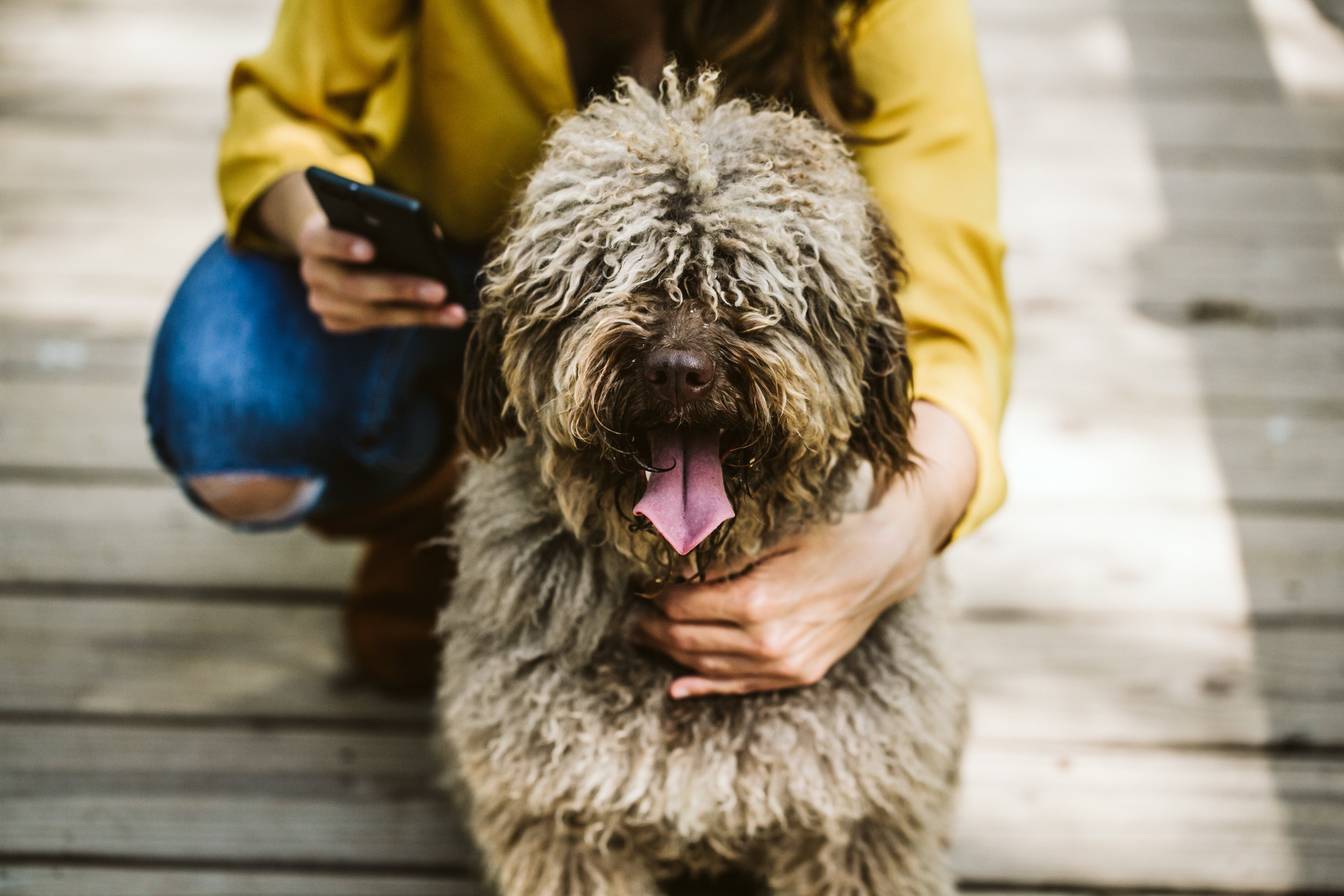We love to spread the love of our breed and many of us have entertained the thought of breeding our dogs to accomplish just that. So how realistic is that dream? Whether you are contemplating only a handful of litters over the course of your lifetime and thus fall in the category of a "hobby breeder,” or if you’re considering becoming a professional dog breeder, there are known costs that you’ll incur, so it’s good to plan. Below is an overview of some of those costs.
Health Testing
Depending on the country where you reside, you will find suggestions or legal requirements to perform health tests on any potential sire and dam prior to breeding. Parent breed clubs and national registries (e.g. AKC, The Royal Kennel Club, SCC, Dogs Australia) are often excellent sources of information on what health tests are suggested (or required) for your breed. Databases of health test results are increasingly available via these registries or other organizations, e.g. via the OFA in the USA, ORCHID in Australia, or The Kennel Club Health Lookup in the UK, so that you may research the health of members of a pedigree.
Clinical (non-DNA) Health Clearances
There are many inherited disorders for which no DNA tests are yet available. To help reduce the likelihood of passing on these diseases, veterinary specialists are enlisted to examine potential breeding dogs. Some of the more common clinical health screenings that are suggested or required for both the sire and dam prior to breeding include:
-
Radiography (typically under general anesthesia) for hip dysplasia, elbow dysplasia, or spinal abnormalities, including intervertebral disc disease and vertebral malformations
-
Eye examination by a board-certified veterinary ophthalmologist
-
Echocardiogram, ECG or other cardiology assessment
-
Brucellosis screening—a blood test for Brucella canis, a highly contagious bacteria that causes serious disease, including infertility, in dogs and humans.
-
General health checkup and full vaccinations/robust titers for prevention of infectious diseases
Genetic Health Screening (DNA testing)
Since the advent of DNA testing for inherited diseases in dogs, hundreds of disorder variants have been identified in dogs and more are discovered every year. Wisdom Panel™ has specialized in disorder DNA testing, and along with disorder discovery research, pioneered panel testing in dogs. Currently, over 270 disease-associated mutations are detectable using Wisdom’s breeder products, Optimal Selection™ (for breeders in North America) and MyDogDNA™ (for breeders elsewhere around the world). In addition to essential health information, valuable insights on the dog’s inherited traits and its relative genetic diversity are also provided. These at-home tests provide bundled results within 2-3 weeks of receipt at the laboratory. Some European countries may require genetic testing or DNA profiling prior to allowing potential breeding dogs or a litter to be registered. The availability of DNA tests to dog breeders has had a tremendous impact on reducing the incidence of many forms of inherited disease.
Through DNA testing of potential sires and dams, conscientious breeders ensure that no affected or “At Risk” offspring will be produced in future litters. This approach allows breeders to ethically choose dogs with the qualities they seek for their lines, even if one of the potential mates is a carrier of a specific disorder.

Veterinary Costs
Breeding, Pregnancy and Whelping
As with humans who are growing their family, dog breeders should know what to expect when their female dog is expecting-- as well as the requisite veterinary care of her young puppies.
Like what many humans experience, achieving pregnancy in dogs often benefits from a modern approach to monitoring and assistance. Testing the bitch’s progesterone levels so that a mating can be accurately scheduled is often advised, especially when the prospective mates are not housed together throughout a heat. Artificial insemination (AI) is a commonly used tool that allows transport of semen from distant or deceased males as well as providing an accurately timed, low-risk insemination. Veterinary reproductive specialists or theriogenologists are typically employed for these procedures. Stud fees, including transport of frozen semen, vary widely depending on the value of the prospective sire.
Once pregnancy has been achieved, often determined by ultrasonography 3-4 weeks post insemination, it is advised that pregnant bitches are dewormed to help reduce or prevent infection of the newborn puppies. Close monitoring of the health of the bitch and rapid response to any illness, from pregnancy-related nutritional and hormonal imbalances to infections, is essential for the well-being of the dam and fetal pups. Preparing for a successful whelping may involve additional ultrasound or X-ray visualisations and not uncommonly, Caesarean section.
Postnatal Care of Puppies
Once the exciting and joyful day (and often night) of whelping has passed, comes the next eight weeks of ensuring the young puppies thrive and become ready to send to their next homes. The expecting dam should have access to a clean and warm area with a whelping box that what will allow her pups to be safely contained, nursed and observed as they grow, and the pups and the nursing mother will require a supply of high-quality dog food.
The mother and newborn pups should be examined by a veterinarian within 48 hours of whelping to ensure that there are no health concerns following birth. Not accounting for additional unforeseen emergencies or failure to thrive visits to the veterinarian, at least one additional clinical exam at 6-8 weeks is also needed. During this period prior to placing the pups in their new homes, they will follow a de-worming schedule and often the first vaccinations are also administered. While at the veterinary clinic it is now common, and in many countries required, that pups receive microchips prior to their sale. For certain breeds where inherited deafness is a problem, BAER testing is recommended when pups are 5-7 weeks old. Breeders are encouraged to have their puppies DNA tested as this provides a health assurance to puppy-buyers and increases the value of the pup. Discounted pricing for testing litters of puppies is available with Optimal Selection™ or MyDogDNA™ for this purpose.

Finding Appropriate New Puppy Owners
It is the breeder’s responsibility to ensure that the offspring of their breeding find homes and do not end up in a shelter or rescue. Prospective buyers have the best of intentions in purchasing a puppy but may not be prepared for the reality of what that a growing dog needs. Reputable breeders take time to screen prospective puppy buyers to assess whether the addition to the human family will be a good fit.
Well-established professional breeders often have litters reserved even prior to a successful mating but first-time or hobby breeders will often need to advertise the availability of the puppies to successfully place them. It should be noted that some social media outlets, e.g. Facebook Marketplace, prohibit the sale of animals so such resources may not be available for advertisement of the litter. There are, however, multiple pay-for-service pet-oriented online sales outlets available. Some breed or national clubs also maintain breed-specific opportunities for advertisement, especially to club members. Examples include the FKK's Puppy List Service, AKC Marketplace and UK's Royal Kennel Club Assured Breeder program.
Commitment for Life
As joyful and rewarding as the world of dog breeding can be, it comes with an imperative to try to produce the healthiest, best representatives of your breed as possible. Working with experienced breeders and their parent clubs is always a good practice as you will usually find a wealth of knowledge and sound advice there on what factors you should consider before breeding.
Puppy-health guarantees are standard in contracts and reputable breeders will want owners to inform them of any health issues that arise in the dog they produced throughout its lifetime. Learning of any potentially inherited disorders in their pups as they have aged is how the best breeders have successfully aided researchers and organisations like Wisdom Panel™ in the discovery of genetic mutations. It is thanks to such breeders that we now have the plethora of DNA tests to prevent these afflictions.
Doing your homework before you breed, preparing your dog and your home, and ensuring you have the finances available to breed responsibly is achievable with appropriate planning. Health testing in advance, establishing a good working relationship with a reproduction-savvy veterinarian, and having a marketing plan in place to identify appropriate new owners for your pups will give you peace of mind, and frees you to enjoy the process of producing high quality puppies for the next generation of purebred dog lovers.
|
General Expense Category (per dog, i.e. sire, dam or puppy) |
Low Estimate (€0 if not needed) |
High Estimate |
Sire, Dam or Both |
Frequency of cost |
Comments |
|
Prior to Mating |
|
|
|
|
|
|
Hip, Elbow, Spinal X-rays including health database registration (e.g. OFA, PennHIP) |
€92 | €644 |
Both |
One-time |
Typcially done when dogs reach 2 years of age or more. Requires general anesthesia and associated risk |
|
Eye Examination |
€92 |
€230 |
Both |
Annual |
Board Certified Veterinary Ophthalmologist required; Often dog shows will schedule an "eye clinic" for this service |
|
Echocardiogram/ECG/Heart health check |
€0 |
€230 |
Both |
One-time |
Some at-risk breeds benefit from repeated cardiac screening throughout life. |
|
Brucellosis screening |
€74 |
€184 |
Both |
Every mating |
False postive screening results are not uncommon and need to be followed by more sensitive testing |
|
Wisdom Panel™ MyDogDNA™ or Optimal Selection™ Genetic Screening |
€120 |
€166 |
Both |
One-time* |
Higher price includes DNA profile and parentage service;Check for discounts with breed clubs; If breeding over the course of years, check Wisdom Panel for updates/additional tests that may be signficant to your breed |
|
Pre-mating veterinary health check, de-worming and vaccination boosters |
€92 |
€276 |
Dam |
Every mating |
|
|
Breeding license |
€0 |
€184 |
Dam |
Annual |
Depending on country and how many litters per year are produced, a breeder license may be required |
|
Pregnancy & Whelping |
|
|
|
|
|
|
Stud Fee |
€0 |
€1,380 |
Sire |
Every mating |
Stud fees vary widely depending on the value of the potential sire |
|
Travel and lodging for mate (sire or dam) for breeding purposes |
€0 |
€4,140 |
Dam |
Every mating |
depending on whether one owns both sire and dam or if travel is needed for mating/shipping semen |
|
Progesterone Testing |
€92 |
€276 |
Dam |
Every mating |
|
|
Artificial Insemination |
€0 |
€920 |
Dam |
Every mating |
|
|
In utero imaging (ultrasound/X-rays) |
€46 |
€138 |
Dam |
Every mating |
|
|
Additional food, pre-natal vitamins |
€138 |
€552 |
Dam |
Every mating |
|
|
Cesarean Section |
€0 |
€1,380 |
Dam |
Every mating (possibly) |
|
|
Whelping Supplies (box, heaters, blankets) |
€138 |
€276 |
Litter |
Every mating |
|
|
Puppies (through 8 weeks) |
|
|
|
|
|
|
Food |
€37 |
€184 |
litter |
Every litter |
|
|
Veterinary care (de-worming, vaccinations) |
€184 |
€552 |
litter |
Every litter |
|
|
Wisdom Panel™ MyDogDNA™ or Optimal Selection™ Genetic Screening - Litter Rate |
€524 |
€717 |
litter |
Every litter |
6 kits per Litter pack (€87-€120 per puppy) |
|
BAER hearing tests |
€0 |
€276 |
litter |
Every litter |
|
|
DNA Profiling and Parentage (registry requirements vary) |
€0 |
€230 |
Both, litter |
Varies |
€40 add-on to MyDogDNA™ or Optimal Selection™ Testing per dog |
|
Registration |
€0 |
€64 |
Litter |
Every litter |
|
|
Advertising |
€46 |
€184 |
litter |
Every litter |
|
|
TOTAL |
€1,674 |
€13,414 |
|
|
|
|
Additional costs to consider: Does not include cost of raising dam and/or sire to breeding age, travel to dog shows to assess quality of potential breeding sire and/or dam, vacation time/lost income due to time spent on breeding demands, regular veterinary care for sire/dam, emergency veterinary care for dam or puppies. |
|||||
The expenses listed in the table above are in addition to those that any dog owner will incur raising a dog prior to breeding (e.g. licensing, registrations, food and housing). The cost of campaigning a dog for titles to demonstrate its merit in a breeding program is considerable, but not required. It can, however, lead to increased value of the puppies.
Resources:

